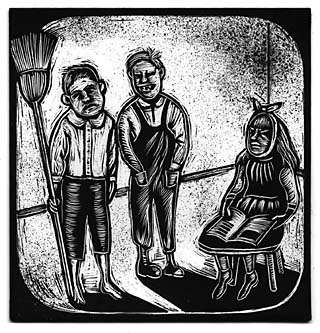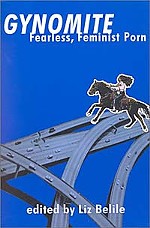Book Review: Readings
Stephen O'Connor
Publisher:Houghton Mifflin
Format:Hardback
Reviewed by Ada Calhoun, Fri., March 2, 2001

The Orphan Trains
The Story of Charles Loring Brace and the Children He Saved and Failed, 1853-1929by Stephen O'Connor
Houghton Mifflin, 362pp., $27
Horatio Alger's rags-to-riches fairy tales about the strapping newsboys of turn-of-the-century New York have shaped the popular conception of that era. And yet there was much more to the plight of the newsboy than Alger would have us believe. The idea that hard work always leads to success and sin always to perdition if you're poor is as much a pipe dream now as it was then.

With this new, thorough history of the Children's Aid Society, Stephen O'Connor fills in the details of the newsboys' lives and options and of the attempts made by the higher classes to redeem them. O'Connor informs without condescending and describes the misery of life in "Five Points," the infamous 19th-century Manhattan slum, without sensationalizing. He weighs out the choices faced by the Children's Aid Society over the past 150 years, framing the debate about welfare and social work in a lucid, humane, and compelling fashion.
Charles Loring Brace was a young minister when, in 1853, he founded the Children's Aid Society and the Newsboy's Lodging House (where, incidentally, Alger stayed and got many of his stories). Despite the success of the Lodging House, where the city's runaways stayed for a fee, Brace believed that unless the children were away from the vicious influences of the streets, and often their parents, they would never escape the cycle of poverty and crime. Thus Brace's removal system, the Orphan Trains, was born.
The Orphan Trains was an "emigration program" whereby poor city children (orphaned, abandoned, or mistreated) were spirited out of their base homes into the country where good Christians would take them in, put them to work, and perhaps even adopt them as their very own. More than a quarter of a million children were removed from the city between 1854 and 1929 and sent to find spiritual redemption and financial security in the West.
Of course, it didn't always work out that way. Although several of the children thrived in the West (a couple even became mayors), some were abused even worse than they had been back in New York. It seemed to make little difference to Brace, however, what specifically happened once the train turned around and went back to New York, and O'Connor takes Brace to task for this. One of the most grievous failures of the Orphan Trains was that after dropping the children off, only scant efforts were made to track the children's lives with their adopted families.
This history of the Children's Aid Society and its founder has an agenda. The conclusion of Orphan Trains leaves little question as to O'Connor's feelings about tax cuts, Rudolph Giuliani's Workfare program, and Newt Gingrich's insistence that welfare mothers are to blame for their own suffering. Even though O'Connor only brings in Brace's modern legacy in the concluding chapter, it is clear throughout that Brace's failures and triumphs ought to provide a lesson in the study of our current, beleaguered child welfare system. In this era of "compassionate conservatism," Orphan Trains is particularly timely.










